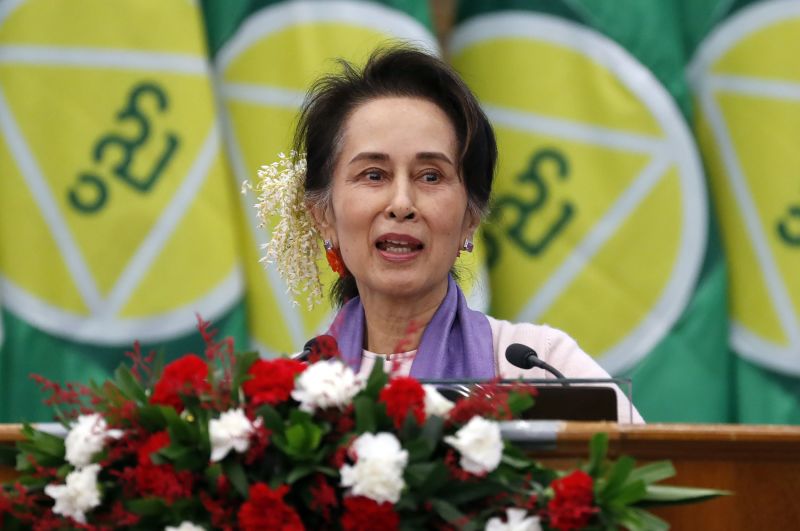The recent developments in Myanmar’s political landscape tell a tale that is complex, dynamic, and in many ways, tragic. One of the key figures at the center of these developments is the nation’s de facto leader, and Nobel Laureate, Aung San Suu Kyi. Having spent nearly fifteen years under house arrest during the military rule, she again finds herself in a similar situation. This sudden shift has thrown a spotlight on the changing patterns of governance in one of South East Asia’s most intriguing nations.
Aung San Suu Kyi, daughter of Myanmar’s independence hero General Aung San, has been a symbol of democratic resistance in a country gripped by long-standing military control. Her party, the National League for Democracy (NLD), won a landslide victory in the general elections of 1990, a result that the military junta did not recognize, and retaliated by placing her under house arrest. Having spent close to 15 years in detention, Suu Kyi’s resilience only strengthened, transforming her into a global icon for human rights and democracy.
A seminal moment arrived in 2015 when the NLD again won the general elections, and Suu Kyi was able to form a civilian government. Yet, her time in power was mired in controversy, particularly over her handling of the Rohingya crisis, which tarnished her international image.
Fast forward to 2021, following the disputed elections that Suu Kyi’s party NLD won by a landslide, the military, again, seized control of the country. The military justified the coup by alleging fraud in the November elections, an accusation rejected by the election commission.
Aung San Suu Kyi was arrested in the early hours of February 1, 2021, and has since been held at an undisclosed location, with her only communication being through her lawyers. Months after the coup, it was revealed that she had been moved from detention to house arrest, a familiar environment for a leader who has endured long periods of confinement.
The state of her current situation is fluid, with information been challenging to come by due to restrictions placed by the military government. Her house arrest has ensured that she remains silenced and cut off from her supporters, as protests continue to rage against the authoritarian regime.
The charges against Suu Kyi are part of a strategy by the junta to neutralize her and legitimize its rule. The charges have been diverse and many ranging from illegal possession of two-way radios to breach of coronavirus restrictions and corruption – all have been vehemently denied by her legal team.
The international response to the house arrest of Aung San Suu Kyi has been significant, with many nations and global organizations calling for her immediate release and the restoration of civilian rule. There has also been widespread condemnation of the military’s violent crackdown on protests, which has resulted in the loss of many lives.
While the future of Myanmar remains uncertain, one factor remains constant, Aung San Suu Kyi remains a significant player in the country’s political landscape, even if she is currently silenced. Her move from an undisclosed detention facility to house arrest is a reminder of her past struggles and her resilience.
However, this development also underscores the tumultuous uncertainty of Myanmar’s political future, a situation fraught with tensions between democratic aspiration and authoritarian resistance. It is crucial to see how things unfold in the coming months, with the hope that the strife-torn nation can navigate through this crisis and embark on a path towards peace, stability, and democracy. Despite the challenges, Suu Kyi remains a figure of hope and resilience for many people in Myanmar who continue to yearn for democratic reform.




